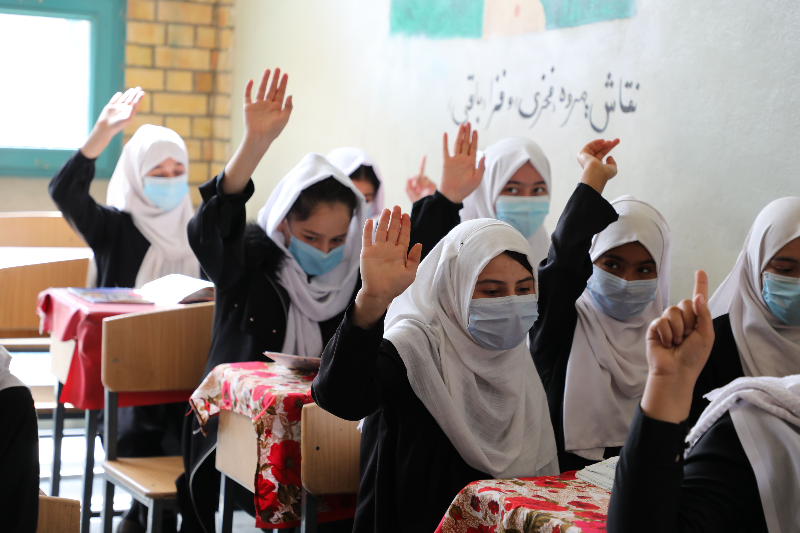

afghanistan 20 years of education progress almost lost
Three years after the Taliban retook control of Afghanistan, the gains made in education in the past two decades have almost completely dissipated. The country is suddenly the only country in the world where girls officially over 12 are not allowed to receive secondary and higher education.
The Taliban recaptured the city on August 15, 2021. Almost immediately, they started denying women’s rightful access to education. Approximately 1.4 million girls are out of secondary school as a result of the Taliban. Adding up the girls who were already out of school before this, the figure reaches almost 2.5 million – such constitutes 80% of all Afghan girls who should be in school.
The situation for universities is no better. Since 2021, the number of university students has decreased by over 50%. This reduction is going to make it more difficult for Afghanistan to source skilled workers in the future, giving this country more problems.
While technically, girls under 12 are still able to go to school, less of them do. Enrolment at the primary school levels has visibly declined in recent years from 6.8 million children in 2019 to 5.7 million in 2022.
Some of the reasons include: First, female teachers are no longer allowed to teach boys; this has contributed to the shortage of teachers even worse than it is. Secondly, many parents do not see the value in sending children to school, especially when this country’s economy is declining. This situation, sadly, might turn into an increase in children working or getting married at an early age.
The UNESCO has installed alternative learning processes to help Afghan children, particularly girls, learn further. Since 2021 they have trained more than 1 000 facilitators, including 780 women, to teach literacy classes in 20 of the country’s 34 provinces. Over 55 000 young people, the majority being girls, benefit from these programs.
Moreover, distance learning is being provided through radio and television by UNESCO, while simultaneously providing Afghan media with technical assistance to develop and air educational programs. They still call on the entire international community to pressure the reopening of schools and universities for all girls and women in Afghanistan.
A group of 36 UN human rights experts has also voiced its concern. They are calling on the international community not to recognize the regime of the Taliban as something usual. These experts say that the rights of women and girls in Afghanistan have been attacked on such a massive scale that it could be a crime against humanity.
They call it “gender apartheid,” a systematic and extensive oppression of women by the Taliban. Experts are urging firm international action to secure the rights of the Afghan people.
The situation in Afghanistan remains precarious, especially for women and girls. The international community must continue raising awareness about their right to education and other basic human rights; otherwise, it will lose all its hard-won successes over the past 20 years.
At the 2025 Great Place To Work Summit in Las Vegas, Marriott's CEO Anthony Capuano showed a powerful moment that…
A new report from Save the Children and Plan International, provides an alarming description of the experiences migrant children have…
In the move to deepen cooperation between North Korea and Russia, Kim Jong Un has sent a large number of…
As per the US Department of Agriculture briefing reviewed by Reuters with congressional staff, more than 15,000 USDA employees have…
In a closed-door session at the Milken Institute Global Conference, Elon Musk, who is now the Senior Advisor to the…
The US Department of Labor experiences its worst staff shortage in history because it lost twenty percent of its employees…
This website uses cookies.
Read More